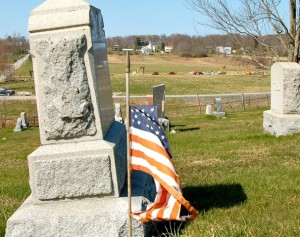What Level of Death Is Acceptable for the Pennsylvania Fracking Industry?
 What happens next if your close friend or relative has been killed in a fracking accident?
What happens next if your close friend or relative has been killed in a fracking accident?
It’s a very real possibility. Last year was a peak year for fatal accidents in the energy industry. Numbers from the Bureau of Labor Statistics show that the death rate for oil and gas workers is more than seven times the rate for industry as a whole.
But even if your friend or relative isn’t employed by the energy industry, fracking poses a significant risk of a crippling or fatal injury. Gas fracturing wells in other parts of the country tend to be isolated in rural areas.
Because the Marcellus Shale region is so large, however, gas wells are common in residential neighborhoods, suburbia, and less densely populated areas of Pennsylvania. The danger from fracking gas wells may not be in your back yard, but it’s definitely across the street or a couple blocks away.
Four key areas of danger
So where are the greatest dangers from Pennsylvania fracking operations concentrated? We wouldn’t be wrong saying, “The danger is everywhere,” but that’s not the answer you’re looking for. So let’s take a look at four areas that provide significant risk of especially catastrophic accidents:
-
-
- Gas well excavation and mining. The use of heavy equipment and powered machinery in a chaotic space, overrun with dozens of contractors, means well-site accidents happen with alarming frequency.
- Gas field explosions. A single spark at the wrong moment can engulf a mining operation in flame. Gas flowback into unsafe vessels is a common problem in mining operations that use fracking techniques. Ruptures in fracking fluid tanks or high-pressure steam lines are almost equally destructive as gas explosions—and they may expose workers or neighborhood children to toxic chemicals used in fracking operations.
- Pennsylvania truck accidents. It takes dozens of truck deliveries to get fracking equipment to an exploration site, and hundreds of tanker trips to bring water for fracking fluid. Fracking vehicle crashes have become frightfully common throughout Pennsylvania—and not just on the highways. The huge size of the trucks involved generally means significant injuries for occupants of the passenger vehicle after a fracking truck collision in Pennsylvania.
- Gas pipelines. Transmission and distribution pipelines are subject to corrosion, ruptures, leakage, and explosions. Just days ago, a ruptured gas pipeline in Missouri caused a fireball the size of a football field. Energy companies want to crisscross Pennsylvania with new pipelines to bring their gas to market. Can our neighborhoods really tolerate this level of risk?
The Pennsylvania Fracking Industry hopes you don’t mind all these deadly accidents
Energy companies think that Pennsylvanians are willing to sell their lives cheaply. They think it’s okay to offer a couple hundred dollars to offset burial expenses. They think it’s okay, because not many people are willing to stand up to them and say it’s not okay.
If negligence in the Pennsylvania fracking industry hurt you, you may have a legal claim against that company. A lawsuit isn’t a way to profit from your family’s grief—it’s a way to tell the world that energy company executives will take responsibility for the injuries they do. Call Pennsylvania fracking lawyer Jon Ostroff and his team at Ostroff Godshall Injury and Accident Lawyers today. They will evaluate your case for FREE and let you know what your best options are to move forward.



 What happens next if your close friend or relative has been killed in a fracking accident?
What happens next if your close friend or relative has been killed in a fracking accident?